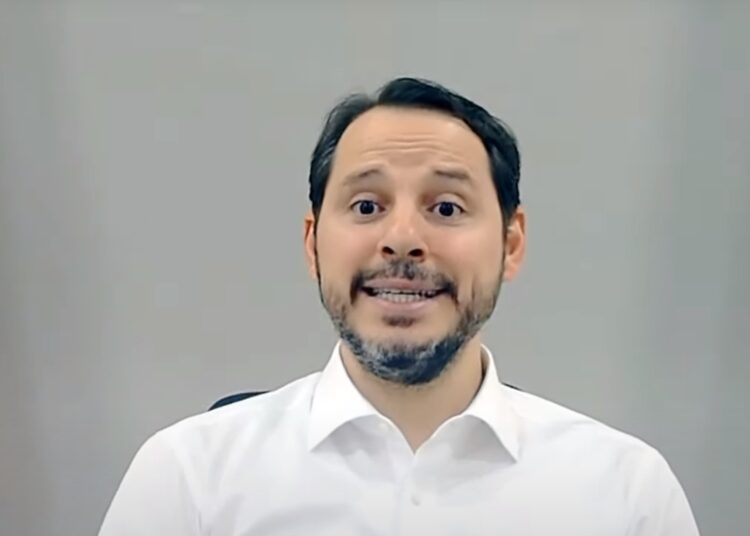Abdullah Bozkurt/Stockholm
The inhumane torture practices, such as electroshock and waterboarding, inflicted on victims detained at a military facility were personally authorized by Berat Albayrak, the son-in-law of the Turkish president, according to a statement from one of the victims.
On November 14, 2017 1st Lt. Mehmet Akçara provided testimony at the Ankara 17th High Criminal Court stating that that the person in charge of the acts of torture perpetrated on him and others explicitly conveyed that the person who authorized the torture and abuse they suffered was Albayrak. The instructions from a political figure was also green-lighted by Hulusi Akar, the then-chief of general staff.
In the period between 2016 and 2018, Albayrak held the position of cabinet minister and was the de facto prime minister, exerting significant influence on government policies, primarily due to his relationship with his father-in-law.
“[Ömer] Ertuğrul Erbakan, the leader of the torture team, said he executed all these actions with the knowledge and consent of prosecutor Serdar Coşkun, who was directly authorized and instructed by Minister Berat Albayrak,” Akçara told the three-judge panel during the hearing, according to court documents obtained by Nordic Monitor.
Akçara was among the officers unlawfully detained at a shooting range situated at General Staff headquarters in the aftermath of a false flag coup attempt on July 15, 2016. The failed coup was, in reality, an intelligence operation devised to strengthen President Recep Tayyip Erdogan’s authority, fabricate a pretext for mass purges of government employees and launch a crackdown on government critics and opponents.
“They threatened to return me to the shooting range if I went to the prosecutor to explain what happened, claiming that this time they wouldn’t release me without resorting to lethal measures, thereby putting an end to the torture,” he added.
Akçara was a member of the private secretariat for the chief of general staff, tasked with writing speeches and messages for then-Chief of General Staff Hulusi Akar. Educated in literature and language skills prior to joining the Turkish Military Academy, Akçara served in a NATO mission in Kosovo, where he trained allied officers in the Turkish language. On the evening of July 15, he was the night shift duty officer and had worked closely with Akar during the day.
Part of the court document that identified Berat Albayrak as the senior government official who authorized the torture in 2016:
At night, a special forces team was deployed to General Staff headquarters in response to intelligence indicating a planned terrorist attack. Akçara, along with many others in the building, was confined to his room while the forces systematically secured the offices, ensuring the safety of the top commanders. He had no involvement in the coup and played no part in any of the actions associated with it.
He continued working at the General Staff until August 2, when he reported for duty in the morning. On that day, he and numerous senior officers at the headquarters were arbitrarily labeled as putschists and transported to an illegal detention site, where they were subjected to torture.
Operating based on a preconceived false narrative about the coup, his interrogators exerted pressure on him to sign a prepared confession, identify individuals for prosecution and falsely acknowledge his participation in events he had no involvement in.
The construction of fabricated cases against military officers was a strategic component of a clandestine plan orchestrated by the Erdogan government. This plan was aimed at purging pro-Western officers from NATO’s second-largest army and replacing them with individuals exhibiting unwavering loyalty.
The replacements were drawn from a coalition comprising radical Islamists, neo-nationalists and far-right figures. Subsequently, nearly 30,000 officers, predominantly staff officers, and two-thirds of the entire group of generals and admirals were summarily and arbitrarily dismissed from the military, with many subjected to politically motivated criminal trials.
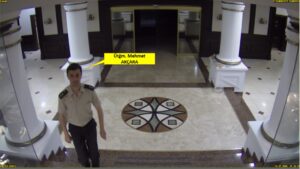
Akçara was one of the officers ensnared as victims in this sinister plot and who endured its consequences. Authorities sought to coerce him into providing a statement that supported the government’s narrative regarding the false flag operation. The torture site where he was taken was situated in a remote part of the General Staff compound, chosen by the torturers as the ideal location to carry out their abuses away from public view.
The torture team, led by brigadier generals Oğuz Tozak and Ertuğrul Erbakan, informed Akçara that they were aware of his innocence. However, they asserted that prosecutor Coşkun required a false witness statement to construct a case. In exchange for naming certain senior officers as members of the Gülen movement, a group critical of President Erdogan’s government, Akçara was promised release and the retention of his military rank.
When he refused to sign the false statement, the torture session commenced, lasting approximately six hours and beginning with waterboarding. “During the initial waterboarding, I managed to tear off the plastic handcuffs and remove the blindfold. I saw who they were with my own eyes. They again covered my eyes tightly with pieces of fabric, duct-taped over many times, and put two plastic handcuffs on me,” he explained.
Akçara’s convulsing body during the waterboarding compelled him to rip the handcuffs for the second time. “This time, in a desperate attempt, I managed to tear off both plastic handcuffs from my hands again. Then Tozak, shouting at the torture team, said, ‘You can’t control one person with six people,’ and started kicking me in the ribs and stomach on the ground,” he continued.
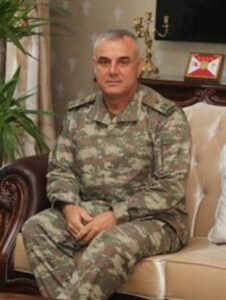
He endured hours of punches and kicks in an attempt to coerce him into accepting their demands. At one point, the torture team administered electric shocks. “I passed out several times, and finally, Erbakan himself personally put three plastic handcuffs on me and continued to experiment with the torture for hours,” he recalled.
He also overheard a conversation his torture team had outside the door during which they expressed concern about the potential consequences they might face in the future for their actions during the torture sessions.
After a while Erbakan returned to the room. Maj. Ismail Atasoy, one of the torturers, informed Erbakan that the victim still refused to sign a false confession and expressed concern that if they continued further, Akçara might not survive.
He was then taken to another room and put in a chair. Pointing a gun at his head, Erbakan said they could detain him for a month, subjecting him to further torture under the state of emergency in force at the time. After 30 days, if he still refused to sign the statement, they threatened to execute him.
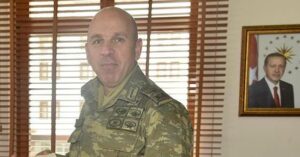
“They said they would dress me in PKK [outlawed Kurdistan Workers’ Party fighters’] clothing and throw me from a helicopter into the mountainous Gabar region, ensuring that not a single piece of me would be found.” He was given 10 minutes to decide, and they put him back in the torture room, closing the door, Akçara recounted.
After a while, Erbakan returned and inquired whether he would agree to sign the false confession. “When I refused, Erbakan pointed the gun at my head again and said he would count from 10 and shoot me right there without waiting 30 days. I still didn’t agree. As he had said, he counted from 10 and pulled the trigger, but the gun wasn’t loaded,” he said.
The torture and abuse continued for 36 hours without any food or water. In the end he was handed over to the military police for processing. Recognizing that Akçara would not comply with the fabricated story and was willing to die for the truth, the torturers eventually abandoned their efforts. However, they devised an alternative plan: They forged a signature on the false statement to create the appearance that he had actually signed it.
Months later, when an indictment was drafted and a copy provided to him, Akçara noticed the forgery and the inclusion of the fabricated statement. The statement, dated August 2, 2016, curiously did not attribute any names to those who conducted the questioning, revealing the torturers’ apprehension about accountability once their plot was exposed in the courtroom.
Battery report provided by a military hospital showed traces of torture on Mehmet Akçara’s body:
Nordic Monitor obtained a copy of this three-page statement from court records and verified that both the signature and the names of those who took the statement, recorded and witnessed, were left blank. This was peculiar, given that procedure mandated the presence and signatures of all three military officers to make the statement official.
Akçara asked the court to examine the statement for fingerprints to identify whose prints were on it. However, the court, operating under strict political directives to prevent the exposure of the false flag operation, refused his request.
The medical report prepared by the military police hospital on August 3 indicated that Akçara managed to document his torture experience. Dr. Murat Arıcı and a medical officer noted in the report the evidence of torture on the victim’s body and the pain Akçara was experiencing in the chest and rib area.
The harrowing ordeal Akçara endured at the shooting range continued at the detention site at the Baskent Sports Hall, where police officers subjected him to continuous torture day and night in an attempt to extract another false confession. His abuse went on for eight days before he was formally processed and sent to prosecutor Coşkun’s office for a deposition.
The prosecutor showed no interest in hearing Akçara’s account of what had transpired on the night of the coup. Instead, he pressured Akçara to name individuals and falsely accuse senior generals. “Now, give us a few names from the top, and everything will change. You’ll be able to walk out of here,” he insisted. Not a single question was posed about the events of the night of July 15, Akçara testified.
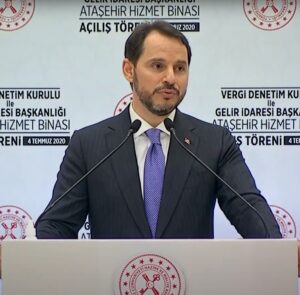
He was subsequently sent to court for arraignment, formally arrested and then incarcerated. Unfortunately, Akçara’s criminal complaints against his torturers went unprocessed, and none of the individuals identified by victims were held accountable. Instead, those involved in building false cases against innocent officers were promoted and rewarded for their roles.
Despite the collapse of the prosecutor’s claims in the indictment and the absence of any evidence implicating him in a coup attempt, Akçara was sentenced to aggravated life at the conclusion of a sham trial on June 20, 2019.
His torturers were rewarded with promotions. Brig. Gen. Erbakan is currently serving as commander of the Special Forces, having been promoted to the rank of major general. Brig. Gen. Tozak continued in various military roles until August 2022, when the Supreme Military Council decided on his retirement.
Fabricated statement for Mehmet Akçara is missing the names of the interrogator, record keeper and witness:
In the aftermath of the events on July 15, 2016, Albayrak gained more power in the cabinet, becoming the de facto vice president with control over the entire cabinet when Turkey switched to a presidential system of governance in 2018, abolishing the position of prime minister. He also assumed authority over the treasury and the economy, thereby acquiring financial influence to shape government policies. While positioning himself to succeed his father-in-law, internal family discord arose due to an alleged extramarital affair with a model, undermining his political ambitions.
According to rumors circulating in the Turkish capital, Albayrak was allegedly discovered by his mother-in-law, Emine Erdogan, having an affair with a model on a yacht in Istanbul. The unverified reports suggest that he was subsequently assaulted by the first lady’s bodyguards and hospitalized.
Albayrak disappeared from public view following his unexpected resignation as finance minister on November 8, 2020, announcing his departure on his Instagram account. He was not seen in public for six months, until he resurfaced in May 2021, attending Friday prayers at the recently built Çamlıca Mosque in Istanbul. However, he subsequently disappeared from public view once again.
Full text of defense statement made by Mehmet Akçara:

